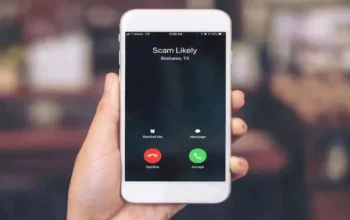Warning: 20379099, 953769951, 095 362 3342, 0839985724, 953625312, 021806000, 20810300, 27009088, 20795271, 022329861, 020179600, 0839930649, 0953646214, 02-037-9099, 20962636, 20162098 in the Thailand
In today’s interconnected world, where technology plays an integral role in our daily lives, we often find ourselves vulnerable to various online scams and fraudulent activities. One such prevalent threat is scam calls, where scammers use phone numbers to deceive and swindle innocent individuals. In this article, we’ll delve into the world of scam calls, shed light on some specific suspicious numbers like 20379099, 953769951, 095-362-3342953625312, and 20810300 in Thailand, and equip you with valuable insights on how to shield yourself against such scams.
Introduction
In an era marked by digitization, scam calls have become an increasingly sophisticated and widespread menace. Fraudsters use various tactics to manipulate unsuspecting victims into divulging personal and financial information, leading to dire consequences.
Understanding Scam Calls
Scam calls are deceptive phone calls made with the intent to extract sensitive information, money, or valuables from individuals. These calls often play on emotions such as fear or urgency, pressuring recipients into complying with the caller’s demands.
Identifying Suspicious Numbers
Not all phone numbers are equal, and recognizing potentially fraudulent ones is crucial. Certain numbers, like 20379099, 953769951, 095-362-3342953625312, and 20810300, have been reported for their involvement in scams in Thailand. Being cautious when these numbers appear on your caller ID can save you from falling into the scammers’ traps.
Unveiling the Numbers: 20379099, 953769951, 095-362-3342953625312, 20810300
These specific numbers have gained notoriety due to their frequent association with fraudulent activities. Individuals receiving calls from these numbers should exercise extra caution and refrain from sharing any personal or financial details.
How Scammers Operate
Scammers use psychological tactics to create a sense of urgency or fear. They might impersonate authority figures or claim that the recipient owes money. By keeping victims off balance, scammers make it harder for them to think rationally, increasing the chances of compliance.
Impacts of Falling Victim
Falling for a scam call can have devastating consequences. Victims may suffer financial losses, identity theft, emotional distress, and damage to their credit scores. It’s crucial to be aware of the potential risks to effectively shield yourself.
Protective Measures Against Scam Calls
- Verify Caller Identity: Always verify the caller’s identity, especially if they ask for personal information.
- Don’t Share Sensitive Information: Never share personal, financial, or confidential information over the phone.
- Be Skeptical: Question callers who pressure you into making hasty decisions.
- Use Call Blocking: Utilize call-blocking apps or services to filter out known scam numbers.
- Educate Yourself: Stay informed about prevalent scams to recognize and avoid them.
Be Informed: Stay Safe
Staying informed about the latest scam tactics is your best defense. Knowledge empowers you to recognize red flags and protect yourself from falling victim.
Educational Initiatives
Government agencies, nonprofits, and consumer protection groups are working together to raise awareness about scam calls. Educational campaigns provide valuable resources to the public, helping them make informed decisions.
Technological Safeguards
Telecom companies are employing advanced technologies to identify and block scam calls in real time. Features like call authentication and spam detection contribute to reducing the frequency of such calls.
Legislative Actions
Governments around the world are enacting stricter regulations against scam calls. By imposing heavier penalties on scammers, authorities aim to deter fraudulent activities and hold perpetrators accountable.
Reporting and Taking Action
If you receive a scam call, report it to relevant authorities. Your action can contribute to investigations and help prevent others from falling victim to the same scam.
Raising Awareness
Sharing your experiences and insights about scam calls with friends and family can help create a network of informed individuals who are less likely to be targeted.
Support Networks for Victims
Support groups and helplines offer assistance to those who have fallen victim to scam calls. These resources provide emotional support, guidance, and steps to mitigate the damage caused.
Conclusion
Scam calls continue to be a concerning issue, preying on the vulnerability of unsuspecting individuals. By staying informed, vigilant, and cautious, you can fortify your defenses against scam calls and contribute to a safer digital landscape.
FAQs
- Q1: How do I know if a call is a scam?
A1: Scam calls often involve high-pressure tactics, requests for personal information, or unsolicited offers. Be cautious and verify the caller’s identity.
- Q2: What should I do if I receive a suspicious call?
A2: If you receive a call that seems suspicious, hang up and do not share any personal information. Report the call to relevant authorities.
- Q3: Are all unsolicited calls scams?
A3: Not all unsolicited calls are scams, but it’s important to exercise caution. Legitimate organizations will respect your decision to verify their identity.
- Q4: How can I protect my personal information?
A4: Avoid sharing personal or financial information over the phone unless you initiated the call and are certain of the recipient’s identity.
- Q5: Can I recover my money if I’ve been scammed?
A5: It can be challenging to recover money lost to scammers. Promptly report the incident to authorities and your financial institution for assistance.






